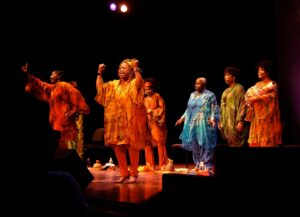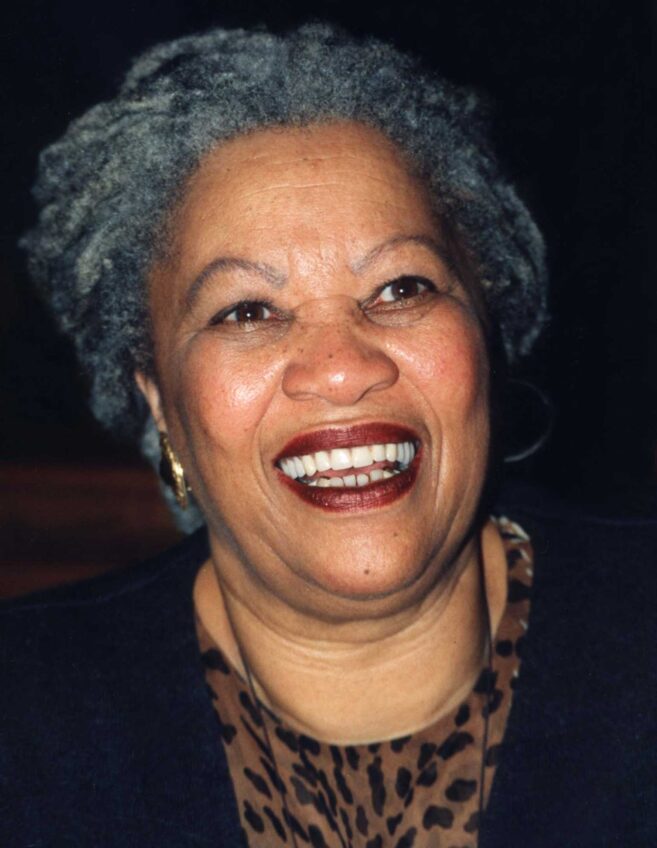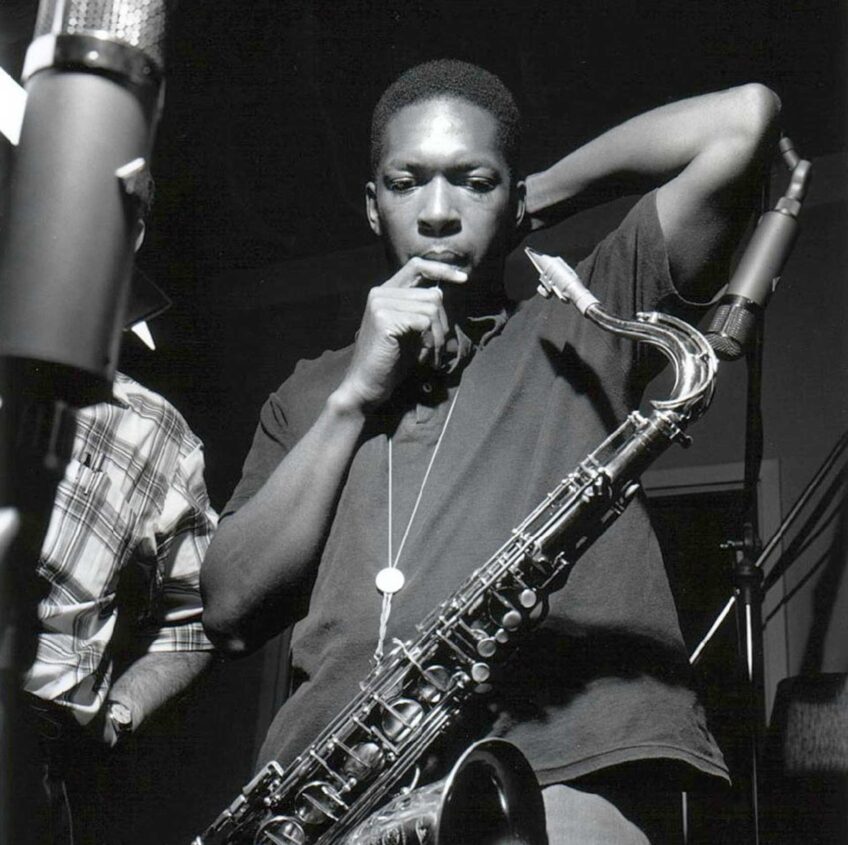Bernice Johnson Reagon of The Freedom Singers and Sweet Honey in the Rock, 81
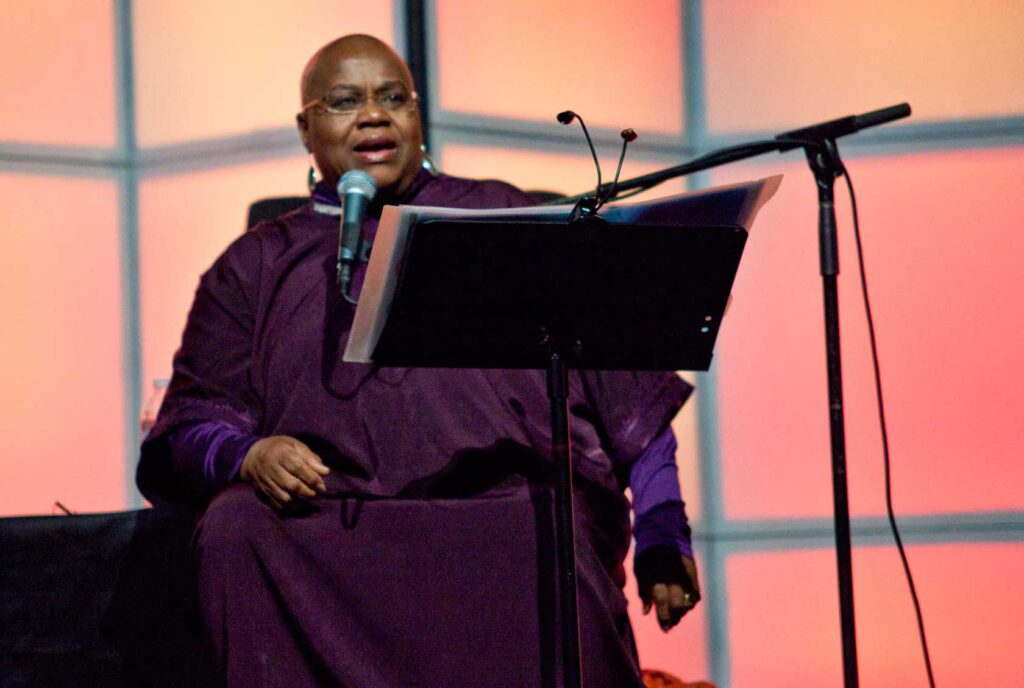
The Jazz Urbane Cultural Commentary
 Bernice Johnson Reagon, a civil rights activist who co-founded The Freedom Singers and later started the African-American a capella vocal ensemble Sweet Honey in the Rock, passed on recently at the age of 81. The world has lost a keeper of the pounding beat, resonant sound-song and lasting lyrics that can never be duplicated.
Bernice Johnson Reagon, a civil rights activist who co-founded The Freedom Singers and later started the African-American a capella vocal ensemble Sweet Honey in the Rock, passed on recently at the age of 81. The world has lost a keeper of the pounding beat, resonant sound-song and lasting lyrics that can never be duplicated.
“Bill, music must be selected not simply by genre, but by whether it is a part of affirmation, meditation, nurturing, creating energy … never echoing devastation without a call for change or hope,” she once told me.
I can never forget that, nor the many times she sat me down and schooled me on what direction our work must take if we want to make a difference with the music.
Few people represented the ideas of music and civil rights and liberation struggles for Black people through the rituals of ideas on freedom and expression in song than she did. Johnson Reagon’s work as a scholar and advocate for justice, human rights and women’s rights embodied how music can change times and transform lives.
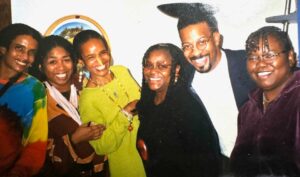
Author and composer Bill Banfield, shares a rehearsal break with Bernice Johnson Reagon and Sweet Honey and the Rock. PHOTO: COURTESY OF BILL BANFIELD
As an arts activist, her dedication to Black life and the struggles for all people, women, men, children and the lost, caught in the tangle of injustice or the machinations of modern life, was evident.
Her music is what I call “spiritual-social-people-based music.” You can hear ritual, belief, commitment and care in the very sound performance of it. It gets down into your soul; you can feel it.
Bernice Johnson was born in southwest Georgia, the daughter of a Baptist minister. She attended the historically Black college, Albany State, at the age of 16, and studied music.
I often speak about aligning ideas and values to the work you commit to. Johnson Reagon represented this idea to perfection.
Frequently, the singing captured in those Civil Rights songs, the ones used in film clips about those times, are embedded in our memory, and it was her efforts to bring Black song ritual (spirited singing in community, clapping, call-and-response) to the contemporary social struggle. This was largely her modern social culture invention.
These songs were called freedom songs; these were largely remade, reformulated versions of spirituals familiar to anyone who grew up in African American churches, community centers and dance halls.
Johnson Reagon was a civil rights organizer who co-founded The Freedom Singers, an a cappella group that was part of the Student Nonviolent Coordinating Committee, or SNCC. The Freedom Singers chronicled SNCC’s activities through music, intertwining these songs with resistance. These songs helped define the era and those who fought for equality.
In 1963, she married Freedom Singers co-founder Cordell Reagon. They had two children, Kwan Tauna and Toshi. In 1967, she returned to school. She received a Ford Foundation Fellowship and founded the famed women’s a cappella group Sweet Honey in the Rock. Through the group, Johnson Reagon reached stages around the world, recorded and published songs and appeared in televised concerts.
Her work continued as a scholar, leading to a 1974 appointment at the Smithsonian Folk Life Institute. She later received a Ph.D. from Howard University and a MacArthur Genius grant in 1989. She went on to produce the NPR documentary “Wade In The Water,” a pivotal series seen by millions. Later in her life she received a Presidential Medal for her tireless work in social justice. Johnson Reagon had a lifelong commitment to exceptional artistry and the high calling of culture ambassadorship, and deep resolve to change the world we live in by working to make it better.
She modeled life-transforming ideas and values through her songs. In her song “Greed,” she sings:
I been thinking about how to talk about greed
Trying to find a way to talk about greed
Greed is a poison rising in this land
The soul of the people twisted in its command.
It moves like a virus, seeking out everyone
Greed never stops, its work is never ever done.
There are not many song performances of Sweet Honey in the Rock that don’t leave you asking questions, singing the song, and being taught how you might make the world a better place by seeing the story in you.
I don’t think there is anything more powerful a human can do than music, except to hope, imagine and love. Johnson Reagon, with her “songs march,” was a strong love and hope warrior.
My friend, our sister of song, mantra embodiment of meaning, affirmation, meditation, nurturing, creating energy, and never echoing devastation without a call for change or hope, we love you, we miss you. Your rituals of song have marked us forward. Live forever within us.

